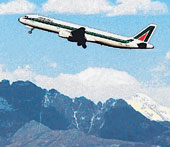![]() This is an old story. Many years back, Justice Hidaytullah was speaking at a gathering of advertising professionals. The story was about his student days in the USA. Brilliant speaker that he was, the audience was roaring with laughter when he finished his tale. Being a student staying in an alien country, weekend visits to relations and acquaintances were something he looked forward to. Good food apart, it was the chance to speak his mother tongue, being able to read a few publications from back home ? all these together made a difference. It was the cheapest surrogate to returning home. Most importantly, it saved money for the day ? no food cost, no entertainment expenses, etc. On the whole, such socialising was always a very lucrative deal.
This is an old story. Many years back, Justice Hidaytullah was speaking at a gathering of advertising professionals. The story was about his student days in the USA. Brilliant speaker that he was, the audience was roaring with laughter when he finished his tale. Being a student staying in an alien country, weekend visits to relations and acquaintances were something he looked forward to. Good food apart, it was the chance to speak his mother tongue, being able to read a few publications from back home ? all these together made a difference. It was the cheapest surrogate to returning home. Most importantly, it saved money for the day ? no food cost, no entertainment expenses, etc. On the whole, such socialising was always a very lucrative deal.
On one weekend he was driving his car to a relations? home in a neighbouring state. He was driving on the highway that would take him to the state border. This is when he first saw the billboard. The ad made a very simple announcement ? do not miss your chance to buy gasoline at $ 1.2 per gallon. He checked the fuel gauge. His tank was half-full. He thought he could comfortably make the return trip. This was towards the end of the month, so he had to be cautious.
He drove past a few more of such billboards. The appeal to avail of the opportunity to buy gasoline at that price became more and more intense. Every time he drove past such advertising, he debated whether to save some long-term money. Immediate cash flow was also an issue.
Finally, he could see the border check post, he was about to enter the neighbouring state. This is when the last billboard, larger than any other he had seen so far became visible. It said ? your last chance to buy gasoline at $ 1.2. He could no longer resist the temptation. He drove into a gas station and filled up. A few minutes later, he was driving through the neighbouring state. A gas station appeared on the roadside. A simple sign there informed him that gasoline was available there at 0.99 p.
 |
Humorous as the story is, most probably it is true as well. Advertising is often accused of falsification. Complete untruths are however very rare. Half-truths are more common. And it happens not in every ad but in some. Not every time but in some instances. There is a recent example.
Of late, almost all airlines are offering cheap fares to Bangalore or Bangkok, London or Lahore. They are announced with much fanfare, and the information is usually technically correct. It indeed is possible now to fly abroad at the cost of a Rajdhani ticket to Delhi. The unsaid portion is that very few seats are available at that price. So there is a mad scramble for those seats.
The hope, I presume, is to cash in on the overflow. The ad announcing the cheap fare is unlikely to be meant to fill those few seats only. Perhaps the primary purpose is to make a trip abroad look realistic. Once the fire is lit, there possibly is no coming back. If the cheap fare is not available, the temptation is to avail of the next best option. Arguably, this is a clever strategy.
The only problem is that there would be a segment of consumers who will be disappointed. Not being able to upgrade, they will suffer the pains of an unfulfilled desire. Apart from affordability, the fact that a holiday is often time-bound, thanks to the school vacations and the leave of absence granted from the workplace, creates a constraint. To them, the credibility of the offer in particular and of advertising in general can be stretched. It is the latter that is of more serious concern. For, along with airlines, all advertising may suffer in the long run.










